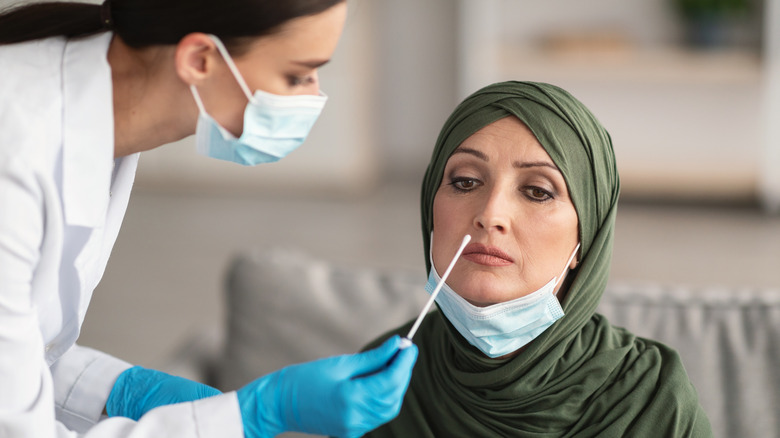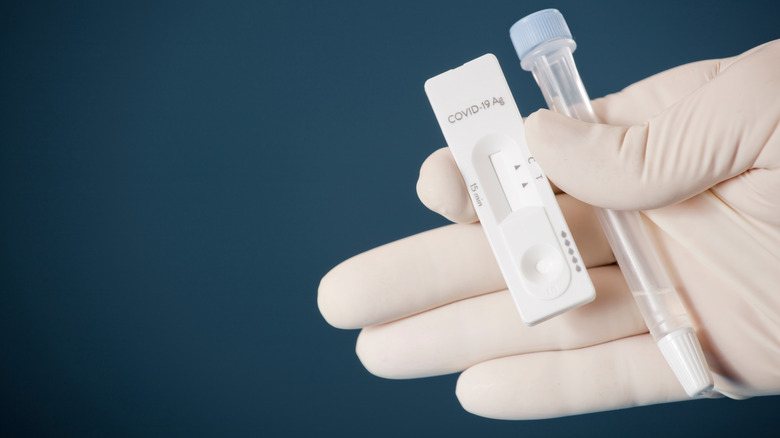Is It Possible To Know Whether Or Not You've Had COVID-19? An Immunologist Weighs In
While some symptomatic cases of COVID-19 can indicate we may be carrying the virus in real-time, is it possible to determine whether or not you've had COVID-19 previously? In speaking with Health Digest, Dr. Purvi Parikh, an allergist and immunologist with Allergy & Asthma Network, shares her expertise on the topic.
When asked how likely it is that an individual could have been previously infected with COVID-19 without their knowledge, Dr. Parikh replies, "It is likely as many have either asymptomatic or mildly symptomatic cases." Citing recent research published in 2021, Dr. Parikh states, "A large meta-analysis in JAMA last year showed [asymptomatic infections] could be as high as 40 percent of confirmed cases." Explaining how COVID symptoms can sometimes easily be mistaken for allergies, Dr. Parikh says that a large number of viral transmissions stem from asymptomatic or pre-symptomatic cases of COVID-19 infection.
So are there signs we can look for in ourselves to determine whether or not we may have been infected in the past? Dr. Parikh explains that ultimately, there are no physical signs one can pick up on to indicate a prior COVID-19 infection. "It is hard to know without a confirmed positive rapid or PCR test," she says.
How different types of COVID tests can vary in accuracy
Dr. Parikh goes on to note an alternate type of test. "A nucleocapsid antibody test could help determine if someone had it too compared to a spike antibody or general antibody test, which cannot differentiate between vaccine [versus] previous infection," she states. However, she explains that nucleocapsid antibody tests still require further study. "That being said, these tests have not been studied for accuracy, so we do not know how reliable they are. As an immunologist, I almost [n]ever check these antibody tests for this very reason."
Yet Dr. Parikh acknowledges that rapid antigen tests and PCR tests are not without their potential flaws too. "Both PCR and rapid [tests] can have false negatives too — especially if you are asymptomatic," she tells Health Digest. "PCR tests can have a 30 percent false negative rate and that is even higher with rapid [tests] especially if not symptomatic," she states.
Ultimately, the hope is that as we learn more about COVID-19, testing technology will continue to develop. "Antibody tests are all fairly new and different lab to lab so [there is] no validation yet for accuracy as this is such a new disease still," Dr. Parikh explains. She concludes by adding that current testing measures are unable to differentiate between variants. "You must assume it's likely the most common circulating one," she advises.
To learn more about the Allergy & Asthma Network, visit their website at allergyasthmanetwork.org.


